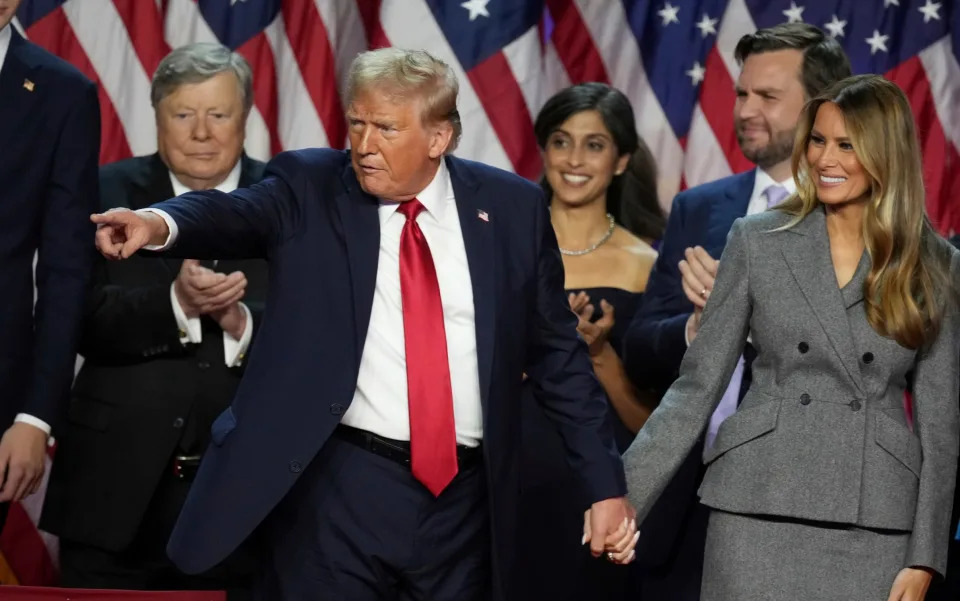News
Markets raise bets that ‘sick man’ euro will hit parity with dollar

Investors are betting that the euro will hit parity with the dollar amid growing fears about the impact of a global trade war on the European Union’s “sick man” economy .
Markets are pricing in a 50pc chance that one euro will only buy one dollar by the end of next year, from $1.04 today.
These odds have narrowed significantly since Donald Trump won the US election by a landslide in November.
Analysts at JP Morgan described the currency as the sick man of the developed world as the bloc’s biggest economies struggle with slow growth and high debt in the wake of Russia’s invasion of Ukraine.
Germany, Europe’s biggest economy, stagnated in 2024 and is expected to barely grow in 2025 .
In a note to clients, the world’s biggest bank said: “The euro is still the sick man of G10.
“Euro weakness is exacerbated by US policy uncertainty, but core structural issues run deeper.”
Oxford Economics, Rabobank and BNP Paribas are among several institutions predicting a further drop in the euro by the end of the year.
Just before the election, investors believed there was only a one in five chance of the single currency hitting parity with the dollar by the end of 2025.
However, Mr Trump has threatened to impose sweeping taxes on imports after he returns to the White House on January 20, previously describing tariff as “the most beautiful word in the dictionary”.
Chinese imports into America could face tariffs of up to 60pc, and as much as 20pc on goods coming from other countries.
EU exports to the US have grown significantly over the last 15 years, rising from 15pc of Europe’s total with the rest of the world in 2010 to over 20pc in 2023, according to research by Caixabank.
Ireland, Italy and Germany are the most exposed to tariffs, according to the bank, with the latter two countries exporting a significant number of cars to the world’s biggest economy every year.
Javier Corominas at Oxford Economics said slow growth in the single currency area suggested the European Central Bank (ECB) would cut rates more quickly than the US Federal Reserve, which would also weigh on the euro.
He said: “This suggests rate cuts will continue well into 2025.”
The ECB has already cut interest rates four times this year as inflation has fallen and policymakers become increasingly concerned about slower growth.
Broaden your horizons with award-winning British journalism. Try The Telegraph free for 1 month with unlimited access to our award-winning website, exclusive app, money-saving offers and more.

